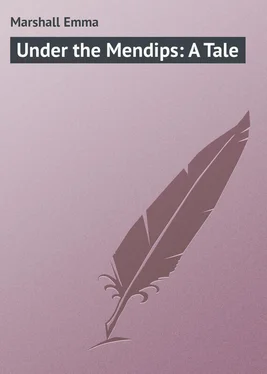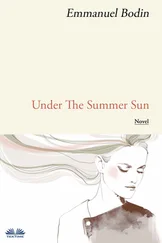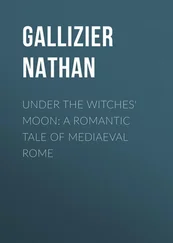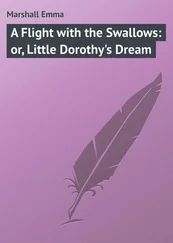Emma Marshall - Under the Mendips - A Tale
Здесь есть возможность читать онлайн «Emma Marshall - Under the Mendips - A Tale» — ознакомительный отрывок электронной книги совершенно бесплатно, а после прочтения отрывка купить полную версию. В некоторых случаях можно слушать аудио, скачать через торрент в формате fb2 и присутствует краткое содержание. Жанр: foreign_prose, на английском языке. Описание произведения, (предисловие) а так же отзывы посетителей доступны на портале библиотеки ЛибКат.
- Название:Under the Mendips: A Tale
- Автор:
- Жанр:
- Год:неизвестен
- ISBN:нет данных
- Рейтинг книги:5 / 5. Голосов: 1
-
Избранное:Добавить в избранное
- Отзывы:
-
Ваша оценка:
- 100
- 1
- 2
- 3
- 4
- 5
Under the Mendips: A Tale: краткое содержание, описание и аннотация
Предлагаем к чтению аннотацию, описание, краткое содержание или предисловие (зависит от того, что написал сам автор книги «Under the Mendips: A Tale»). Если вы не нашли необходимую информацию о книге — напишите в комментариях, мы постараемся отыскать её.
Under the Mendips: A Tale — читать онлайн ознакомительный отрывок
Ниже представлен текст книги, разбитый по страницам. Система сохранения места последней прочитанной страницы, позволяет с удобством читать онлайн бесплатно книгу «Under the Mendips: A Tale», без необходимости каждый раз заново искать на чём Вы остановились. Поставьте закладку, и сможете в любой момент перейти на страницу, на которой закончили чтение.
Интервал:
Закладка:
The squire was seen at the door of the Crown as Joyce and Mr. Arundel turned into Saddler Street, and Joyce ran quickly towards him. Her father waved his hand impatiently.
"Come, Joyce; come, make haste!"
In another moment she had mounted to her seat by his side, and they were off at a quick trot. The good old horse knew that her head was turned homewards and went cheerily down the High Street, past the noble church of St. Cuthbert, where there was no traffic to impede its progress.
The squire was silent until they were fairly out of the town, when he said:
"So your grand brother can't ride in his father's carriage! He and his fine friend may pay for the chaise; I shall not."
"I do not think the friend is fine after all," Joyce said; "he laughed at the idea of the post-chaise."
The squire cracked his whip impatiently.
"He may well laugh. Ah! little Joyce, there are many graver questions at issue than the freaks of an over-indulged, reckless boy like Melville. We had a stormy scene in the court to-day. That man who was let off a month, in gaol richly deserved punishment; but there was a division on the bench and my conviction was overruled."
"Oh!" Joyce exclaimed, "I saw a crowd of rough people going up the Bristol Road; they had taken a pony out of a cart, and were dragging it up the hill, with a man in it, who was half asleep."
"Half drunk," said the squire; "that is more likely. They are a rough lot on Mendip, more like savages than the inhabitants of a civilised country."
"What is to be done to make them better, father? Has not Mrs. More tried to get the children taught?"
"Yes, she has been trying for years to make the schools succeed; but there is plenty of labour and little to show for it."
"Perhaps," said Joyce, "there is some good done, though we don't see it. It is always easier to see bad things than good ones; so easy to see faults in those about us, and to be blind to their goodness."
The squire laughed; between this father and daughter there existed a sympathetic friendship wholly independent of the natural tie of parent and child.
"You are right, Joyce, quite right; but I am afraid one does not need glasses to find out the bad things."
"Father, let us put them on to find the good ones, then," Joyce rejoined.
The squire leaned back, and let the old horse go her own pace, and her own way.
"Ah! my little Joyce, that is wise advice. Thank God, I need no spectacles to find out the good in you . I look to you to keep things smooth at home for the next few days, and to help me to do the same. I am quick-tempered, I know, and when I flare out, I am sorry afterwards."
"You don't often 'flare out,' as you say, to me , dear dad."
"What did your aunt say to you to-day? – called you her 'rustic,' I'll answer for it."
"Oh, yes, of course she did; and she wants me to pay a grand visit to Barley Wood."
"To Barley Wood! – to Mrs. Hannah More! Mother won't hear of it. Your aunt had better not meddle. What do you think about it yourself?"
"I should like to pay a visit – a short visit – to Barley Wood. That is quite different from going to school. But with the boys coming home, and Melville and his friend at Fair Acres, I doubt if I could be spared. It might do me good to go, father; I mean, make me all the more useful at home afterwards."
"What do you expect Mrs. Hannah More to do to you? – cut you into a pattern, as she would cut an old woman's cloak, eh? However, if you wish to go, and any more is said, I'll manage it for you. Perhaps no more will be said; your aunt is just as likely to forget all about it."
"Yes, I know that," Joyce said, with a little ring of disappointment in her voice.
"I'll tell you what pattern I would not have you cut into on any account; and that is poor die-away, languishing Charlotte Benson. Poor thing! if she is a specimen of boarding-schools and accomplishments, I would sooner have Jane Watson for a daughter."
"Charlotte paints flowers very well, father," Joyce said; "and she has worked a figure in Berlin wool of a woman in a red gown feeding chickens; and – "
They had been jogging along at a very leisurely pace, and the sound of fast-trotting horses made Joyce look back.
"To the right, father! quick! it's the post-chaise from the Swan."
The squire pulled up towards the high hedge, and the post-chaise dashed past, the luggage behind, and the two young men lying back in it. The gates of Fair Acres were in sight, and the carriage turned in with an imposing flourish of the post-boy's whip.
"Look here, Joyce, that is a sign of the times. That poor foolish popinjay of ours is only drifting on with the tide. He has brought another young fellow, I daresay, as idle as himself, to eat my bread and give himself airs. Well, I will put up with it for a week, and then both have notice to quit; nor do I desire to see either of them darken my door again. Melville shall travel if he likes, but it shall be across the water – to America, where, if a little of this nonsense is not knocked out of him, my name is not Arthur Falconer."
With this outburst of masculine indignation the squire subsided, and then quietly drove round to the stables, while the post-chaise was being unloaded at the front door; and Melville was giving the post-boy as large a "douceur" – or, as we should have it called in these days, a "tip" – as befitted the imitator of the first gentleman in Europe.
CHAPTER IV.
THE LADY OF BARLEY WOOD
There was a mixture of dignity and simplicity in the reception which Mrs. Falconer gave her son's friend which did not fail to strike him.
"We sup at nine o'clock, sir," she said, "we dine at one, and take tea at five. Thus it is to the first of these meals that I would bid you welcome, as it is close upon eight o'clock now. Will you follow me to your room? – which I hope you will find comfortable."
"I am sure I shall," said Mr. Arundel, warmly. "It is very good of you, madam, to invite me to Fair Acres."
These few words had passed in the hall; and the tap of Piers' crutches was heard approaching, while Nip and Pip came bustling about the new-comers, their short tails vibrating as if they were screwed on with a wire!
"This is our youngest child, sir – Piers," Mrs. Falconer said.
"Where is Joyce, mother?" Piers asked.
"Your sister is behind; our chaise passed her close to the gate."
"Why did not you come with her?" Piers asked, bluntly.
"Because I was not allowed to do so," Mr. Arundel said, good-temperedly. "I can tell you what you will be glad to hear, that your sister did not forget your sparrow-hawk."
Melville, who had after all been wrangling with the postboy about his gratuity in a somewhat undignified manner, now came into the hall as his father and Joyce appeared from a door under the wide staircase.
"Well," said the squire, "you seem holding a counsel here; I hope it is peace, not war. Come, Melville, show your friend to his room."
Considering how greatly the squire had been annoyed by his son's driving out in the post-chaise, he spoke kindly and pleasantly; but Melville was already assuming his grand airs.
"Here, Arundel," he said, "I will take you to your room: first door on the left, I suppose?"
"You will allow me to do as I have done all my life, Melville," said his mother. "I always go with my guests to their chambers, to see they are comfortable. Now, Mr. A run del."
To Melville's horror, his mother put the accent on the second syllable. And as she tripped away – for her figure was still light and supple – he whispered: "He won't know who she means. Tell her, pray, not to say A run del."
Joyce was indignant about the proceedings of the whole day, and she said:
Читать дальшеИнтервал:
Закладка:
Похожие книги на «Under the Mendips: A Tale»
Представляем Вашему вниманию похожие книги на «Under the Mendips: A Tale» списком для выбора. Мы отобрали схожую по названию и смыслу литературу в надежде предоставить читателям больше вариантов отыскать новые, интересные, ещё непрочитанные произведения.
Обсуждение, отзывы о книге «Under the Mendips: A Tale» и просто собственные мнения читателей. Оставьте ваши комментарии, напишите, что Вы думаете о произведении, его смысле или главных героях. Укажите что конкретно понравилось, а что нет, и почему Вы так считаете.












